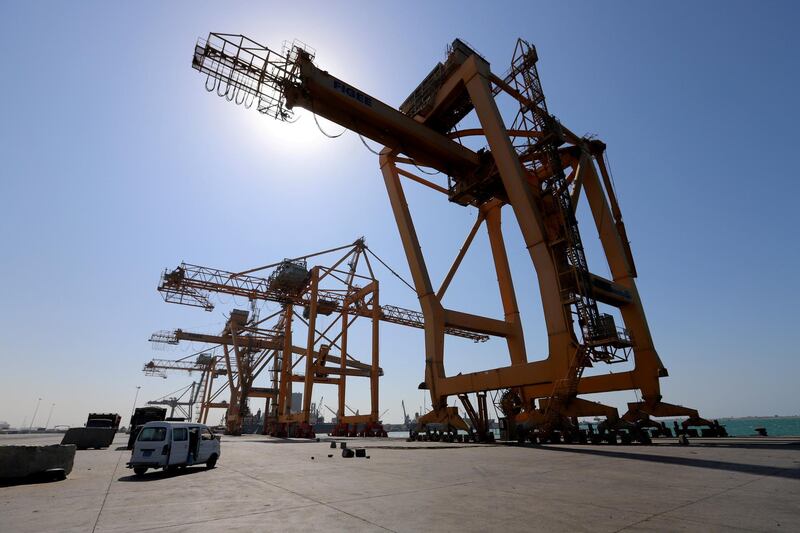Houthi rebels and Yemeni government forces have finally agreed to begin pulling out from the Red Sea ports of Saleef and Ras Issa, UN special envoy Martin Griffiths said on Tuesday.
In a briefing to the UN Security Council, Mr Griffiths said the rival parties had confirmed to him that the deal had been made and a move out from the larger Hodeidah port and “critical parts of the city associated with humanitarian facilities” would follow.
He said this would allow access to the Red Sea mills on the eastern edge of the port city, which is a major humanitarian storage for international food.
“I am grateful to the leadership of both parties who have made concessions to allow this to happen," Mr Griffiths said through a video link.
He called on both parties in the war to immediately implement the agreement.
The withdrawal of government and rebel troops was a central part of the Stockholm agreement struck in December.
It was hoped that those peace talks would start the process of ending Yemen's almost four-year war.
But the plan has stumbled since coming into force on December 18. Mr Griffiths said the initial agreement to remove troops was in part attributable to the leadership of Michael Lollesgaard, who chaired the Redeployment Co-ordination Committee hosting talks between government officials and the Houthis.
“He has led these negotiations with patience and persistence,” Mr Griffiths said. “I am very grateful to him.
“I am under no illusion about the challenges we face but perhaps we can be heartened, rather than dismayed.”
The withdrawals should begin on Tuesday or Wednesday, Mr Griffiths said.
“Despite deadlines being missed, the parties have constantly shown their commitment to implement the agreement," he said.
Despite deadlines being missed, the parties have constantly shown their commitment to implement the agreement. #Hudayda #Yemen
— @OSE_Yemen (@OSE_Yemen) February 19, 2019
“With the beginning of the implementation of the Hodeidah agreement, we now have the opportunity to move from a logic of war to a logic of peace."
Britain's permanent representative to the UN, Karen Pierce, said it was crucial to see real progress in Yemen.
“We need meaningful implementation to begin,” Ms Pierce told the council. “The urgency of making progress cannot be underestimated.”
Kuwait's permanent representative, Mansour Al Otaibi, also stressed the need to see action in Yemen.
“We have not seen a constructive approach,” he told the council, alluding to the Houthis' attitude towards the Hodeidah agreement. "Words must be met with deeds.”
The Red Sea mills hold enough food to feed 3.7 million people for a month but after disagreements over withdrawing troops, the Houthis blocked UN officials from access.
In another part of the UN-brokered peace effort in Yemen, Mr Griffiths said that meetings in Amman had made important progress on a promised exchange of prisoners.
“I would like to think that we are not far off,” he said.






